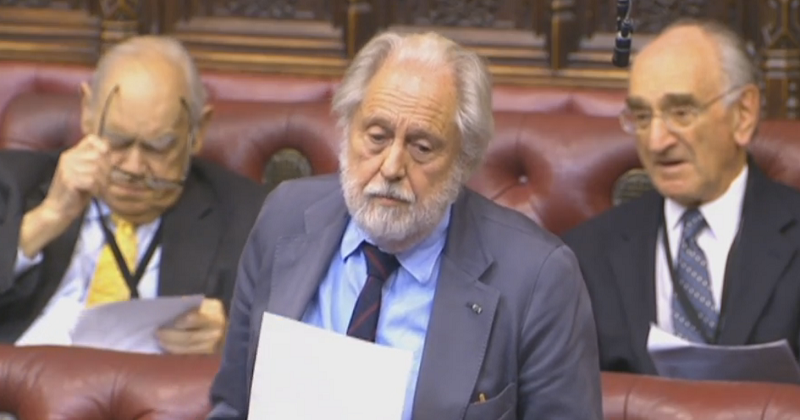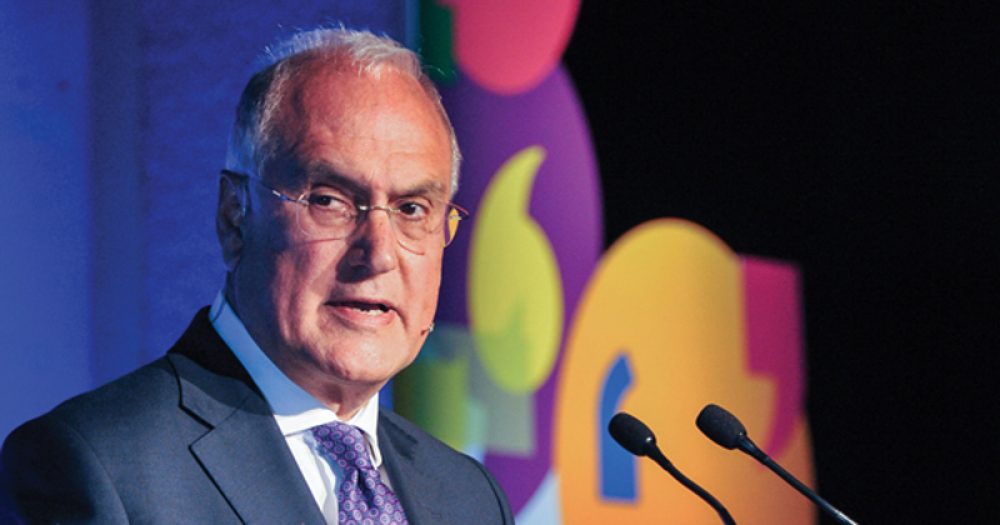Comprehensives can have a ‘grammar-school ethos’, Sir Michael Wilshaw has claimed as he launched his latest attack on plans to expand selection.
The Ofsted boss told the Freedom and Autonomy for Schools National Association (FASNA) conference this morning that grammar schools were not the answer to the nation’s problems, but said there was no reason why comprehensive schools should not “celebrate the importance of tradition, ritual and formality”.
The chief inspector of schools has been one of the fiercest critics of government plans to open new grammar schools, and he warned today that the proposals could put the successes of schools as “remarkable escalators of opportunity” for the children of immigrants and “great forces for social cohesion” at risk.
“My heart sinks sometimes when I visit schools where headteachers walk into classrooms and none of the children pay a blind bit of attention
Wilshaw said there was “no reason” why headteachers should not “insist that children should stand up when staff enter the classroom or sing a school song or learn whole tracts of Shakespeare off by heart”.
“My heart sinks sometimes when I visit schools where headteachers walk into classrooms and none of the children pay a blind bit of attention,” he added.
“As a consequence of all this, and in spite of the enormous strides we have made in the past few years, the comprehensive name is still associated in the minds of many with mediocrity, laxity and failure. For many journalists and politicians, their reputation remains tarnished.
“This is why the proposal to set up more grammars has, despite the evidence, found a wider welcome than it had any right to expect. Grammars are back on the agenda because self-styled progressives refused to back comprehensive reform in comprehensive schools.”
Wilshaw also warned that the performance of children whose parents were born outside the UK was a successful aspect of the school system which had “largely gone unnoticed”, and warned the “short-sighted” and “needless return to selection and segregation” selection could “dissolve” the cohesive power of schools.
He said despite controversies around Brexit and immigration, the proportion of students from immigrant backgrounds with a degree was a measure in which England “leaves its rivals trailing”.
“Schools are the place where different communities integrate. Schools provide the glue that helps hold our society together”, he said. “How short sighted would it be if we carelessly did anything to dissolve it through a needless return to selection and segregation?”
The chief inspector, who will stand down in December following five years in the watchdog’s top job, said the outperformance of children of immigrants of their native peers has become an “ingrained trend” in England but is not replicated across Europe.

“We regularly castigate ourselves – rightly – for the poor performance of white British pupils. Children of immigrants, conversely, have in recent years done remarkably well,” Wilshaw said.
“Schools, it turns out, are great forces for social cohesion. Yet nobody talks about it. We are so used to picking over problems that we forget to notice what an incredible achievement this is. Most other countries aren’t as fortunate.”
GCSE results data from 2015 shows that Chinese children were the highest-performing ethnic group, with 76.6 per cent achieving five A* to C grade GCSEs including English and maths. Other Asian pupils also did well, with 72.1 per cent of Indian children achieving the benchmark.
The same data shows poorer white British pupils trailing behind. In 2015, just 24 per cent of white British boys eligible for free school meals got five A* to C grade GCSEs with English and maths.
Wilshaw said cultural tensions surrounding things like race and religion seen outside schools were “not treated as handicaps” inside institutions, and that all children were “taught equally”.
“And contrary to tabloid claims, non-immigrant children do not suffer, rather the reverse,” he said.








Your thoughts